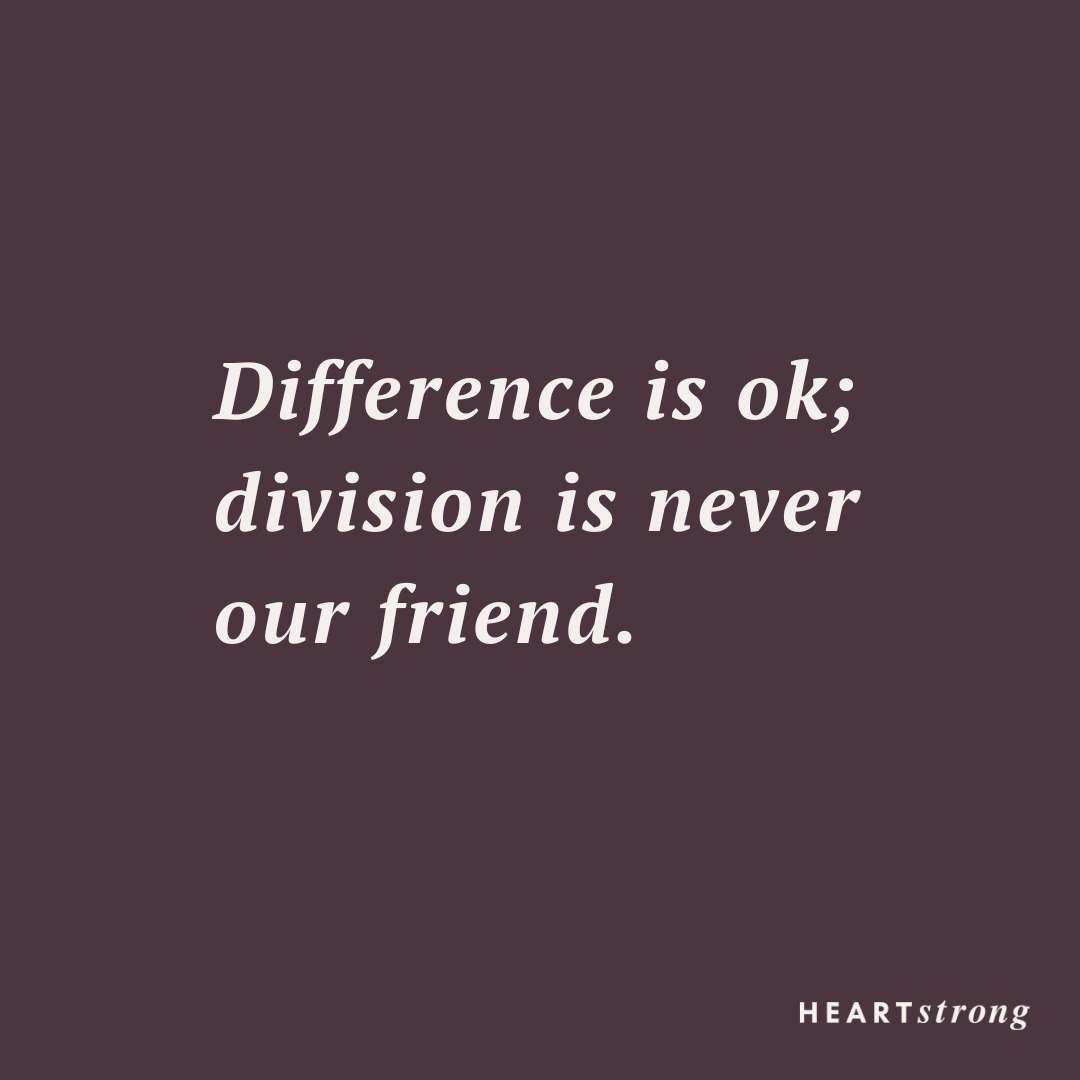
Sin can occur on an individual level and be evident on a societal level.
Here is a question I have been asking myself these past few years.
Q: Do I believe what Jesus said about division?
“Every kingdom divided against itself is headed for destruction, and no city or house divided against itself will stand. Matthew 12:25 (CSB)
Difference is ok; division is never our friend.
To normalize, to justify sin, we often befriend division; the world would be better if everyone became more like me. Sadly, we see this play out in this pandemic and in a much broader fashion.
We divide…
Life in a womb from the life of the woman carrying the child
Life of one with down syndrome from a life deemed more “normal” or valuable.
Educated vs uneducated
Left vs right
Faith vs science
In the last seventy-five years, we’ve divided…
Sex from covenant to contract.
Intimacy to simply get what you want.
Honouring one another to hooking up with one another.
The church bears the stain of its role in sexual sin against boys, girls, women and men.
We equally bear the shame of slavery and our role in the atrocities done to the first people of Canada.
In sin, we can become more committed to proving someone else’s wrong than being truthful; we can, as Justin Giboney says, “hate the lies on the other side, but can’t do without our own.”
We can value winning a point over cherishing a relationship.
Jesus said first deal with your log, then the speck you see in them
Before division is “out there,” a division must first be born “in here.”
“Post-Christianity is not pre-Christianity; rather post-Christianity attempts to move beyond Christianity, whilst simultaneously feasting upon its fruit. Post-Christian culture attempts to retain the solace of faith, whilst gutting it of the costs, commitments, and restraints that the gospel places upon the individual will. Post-Christianity intuitively yearns for the justice and shalom of the kingdom whilst defending the reign of the individual will.” Mark Sayers
Articulated plainly, today, “We want the kingdom (love, joy, peace…) without the King.”
And wherever sin is present, so is all of this. It’s in the Genesis story and ours as well.
In our ever-increasing search for liberty, on our own, without God, untethered from the truth, is it any wonder why we’re hitting the dead-end of legalism?
-
We must always perform.
-
We try to fix everyone, and everyone tries to fix us.
-
We live outraged by the sin of others, not humbled by its presence in our own lives.
-
The line between accountability and cancelling has become blurry.
-
We have little capacity for grace, so we have few pathways for redemption.
“The postmodern view sees all injustice as happening on a human level and so demonizes human beings rather than recognizing the evil forces at work through all human life, including your own. Adherents of this view also end up being utopian – they see themselves as saviours rather than recognizing that only a true, divine Saviour will be able to finally bring justice.” Tim Keller

